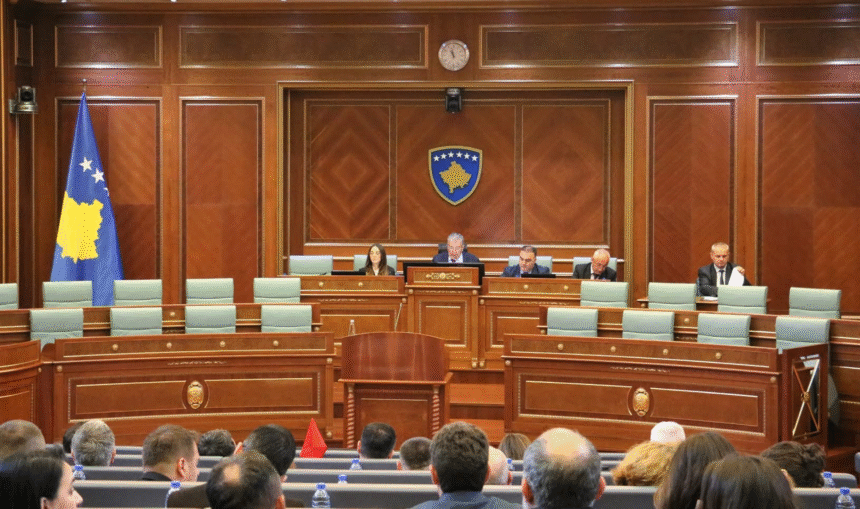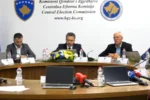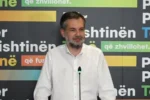Today, the elected deputies of the Kosovo Assembly will convene for the 17th time in a continued effort to constitute the legislature—a process that has dragged on for over a month. The continuation of the session, initially opened on April 15, is scheduled for 10:30 AM.
The Assembly issued an official notice for today’s session, following the failure one day earlier to approve the commission for the secret ballot vote of Albulena Haxhiu from Vetëvendosje (VV) as the Speaker candidate, which caused the session to be interrupted.
That same day, President Vjosa Osmani met with leaders of the four largest parliamentary parties—PDK, LDK, VV, and AAK—to address the ongoing political deadlock.
However, the meeting failed to produce any concrete agreement among the parties.
PDK leader Memli Krasniqi said he had asked VV leader Albin Kurti to withdraw Albulena Haxhiu’s candidacy, calling it a necessary step toward resolving the crisis:
“On behalf of the PDK, I requested that VV leader and MP Kurti change the candidate. I don’t expect that to happen. We remain stuck in the same situation,” Krasniqi stated.
Ramush Haradinaj from AAK also supported the President’s initiative and emphasized the need for a unifying candidate for the Assembly’s leadership:
“We welcomed this opportunity to consult with the President,” he declared.
LDK leader Lumir Abdixhiku expressed disappointment over the governing party’s lack of urgency to resolve the deadlock:
“The leading party shows neither concern nor urgency to solve this matter anytime soon,” he stressed.
After the meeting, caretaker Prime Minister Albin Kurti gave no statements to the media.
President Osmani also met with representatives of non-majority parties in the Assembly. She praised their participation and expressed appreciation for what she described as a constructive attitude during the discussions, despite differing positions.
“I want to commend the leaders for their constructive approach during this meeting, even though there were significant differences on most of the issues. There is at least a minimal willingness to resolve this, which I believe will grow over time,” Osmani said.
She also hinted at the possibility of referring the issue to the Constitutional Court if the stalemate continues:
“We’ve discussed, for the first time, the option of referring the matter to the Constitutional Court,” she added, noting again the “minimal willingness” among leaders to find a resolution.







